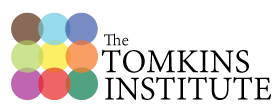
The Tomkins Institute Basic Study Group is designed to present Tomkins theory in a systematic and structured way. Tomkins’s own writings are read alongside commentary by people who have applied the theory in therapeutic and other settings. The material for this course was developed in 1999 and it has been taught continuously since then among small groups the world over. This is the first time this course is being made available online.
Time commitment:
The main activities of the course include
- Reading the assigned readings (Readings for each lesson are estimated to take 3 hours)
- Attending the monthly discussion session for each lesson (Each session lasts 2 hours and uses Zoom as a virtual classroom)
- Writing a short reflection after each discussion session (This can be as short or as long as the learner wishes).
Because it is important that each learner be actively engaged in all discussions, this course is limited to 10 participants.
Required Readings:
To participate in this study group will be expected to purchase threebooks:
- Affect Imagery and Consciousness (AIC) by Silvan Tomkins
- Exploring Affect (EA) by Virginia Demos
- Shame and Pride: Affect, Sex, and the Birth of the Self (S&P) by Donald L. Nathanson
Learning Objectives
The Basic Study Group will help licensed clinicians build on your professional experience and knowledge by achieving the following objectives.
1. Describe each neurobiologically based affect, how it is activated, how it can be recognized, and its function
2. Give a personal or clinical example of each affect
3. Accurately identify the environment in which an individual lives by recognizing the abstract patterns of stimulus density or gradient that triggered the affect
4. Describe the drive auxiliaries and understand Tomkins’s scientific concept of shame
5. Describe and classify the most common reactions to shame
6. Identify the role of shame in therapeutic or interpersonal impasses
7. Describe how Tomkins defined the importance of the Affect System for biology, culture, and personality
8. Discuss some clinical examples of how the recognition of the affects and their triggers helps in psychotherapy
9. Describe major aspects of the affect system and its characteristics.
10. Discuss the role of affects in forming motivation using examples from psychotherapy, or your chosen discipline
Continuing Education Credits:
Continuing education credits are available, though an additional fee is required. All 12 sessions must be attended in order to receive the 24 continuing education credits from APA.
To participate in the Advanced Study Group, contact Matt Casey, mattwcasey@me.com, and he will send you more information about the meeting times and the syllabus.
The Tomkins Institute: Applied Studies of Motivation, Cognition, and Emotion is approved by the American Psychological Association to sponsor continuing education for psychologists. The Tomkins Institute: Applied Studies of Motivation, Cognition, and Emotion maintains responsibility for this program and its content.
